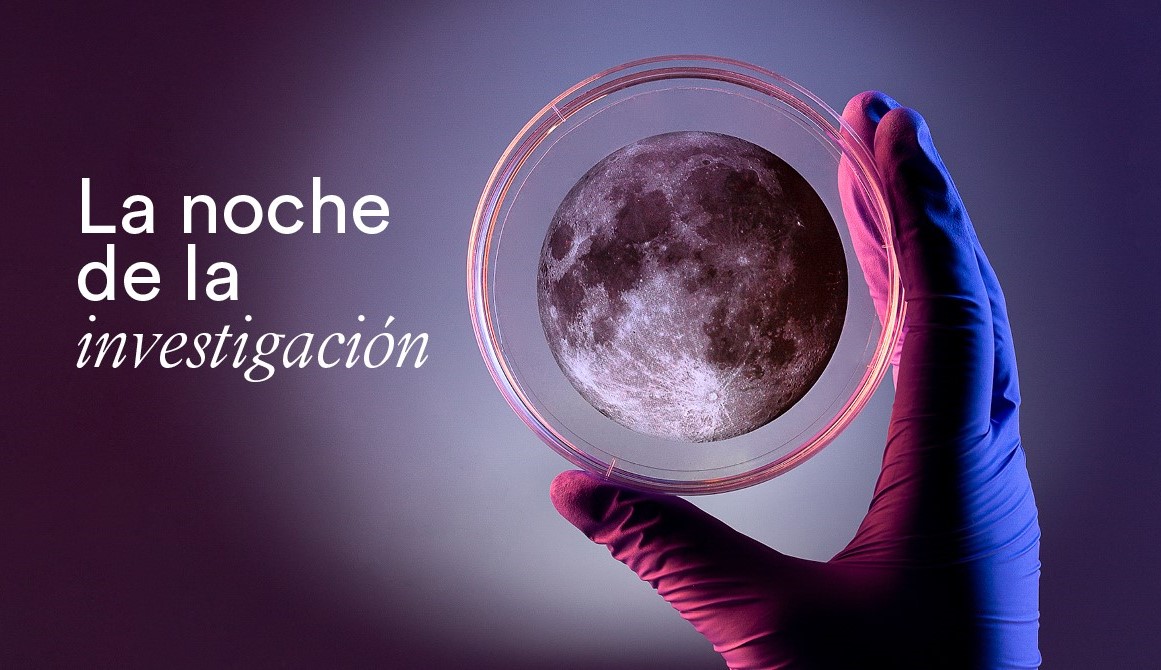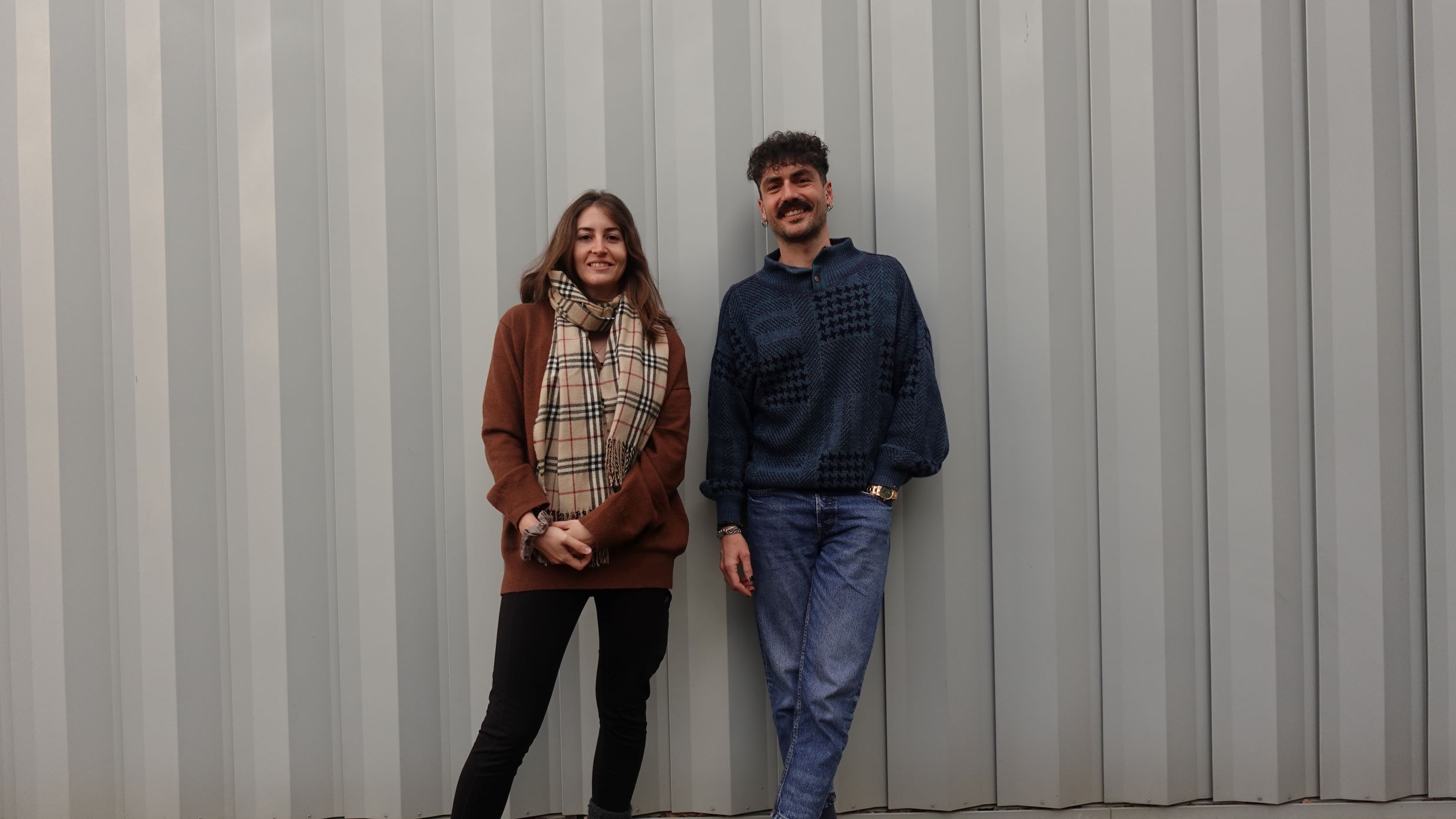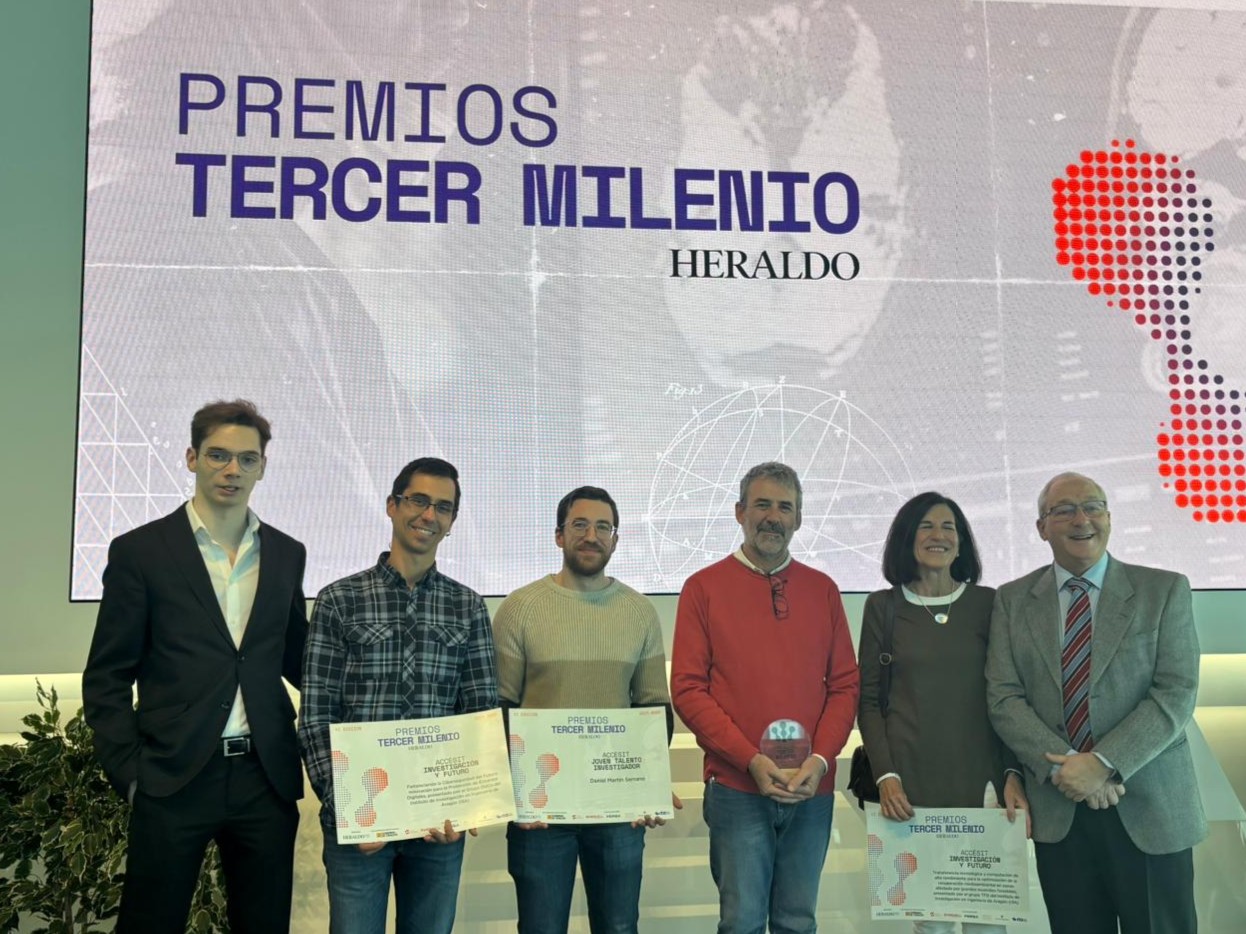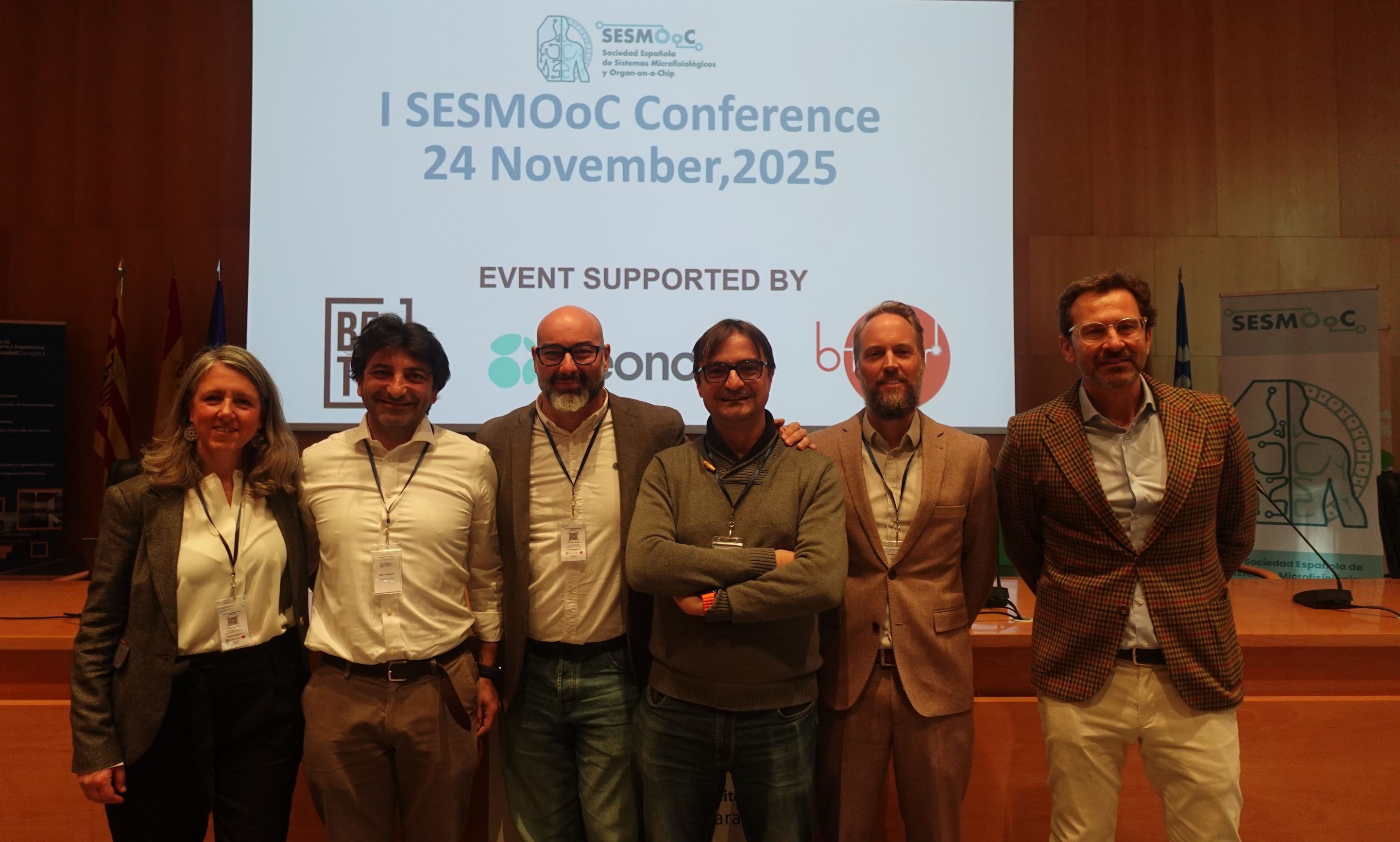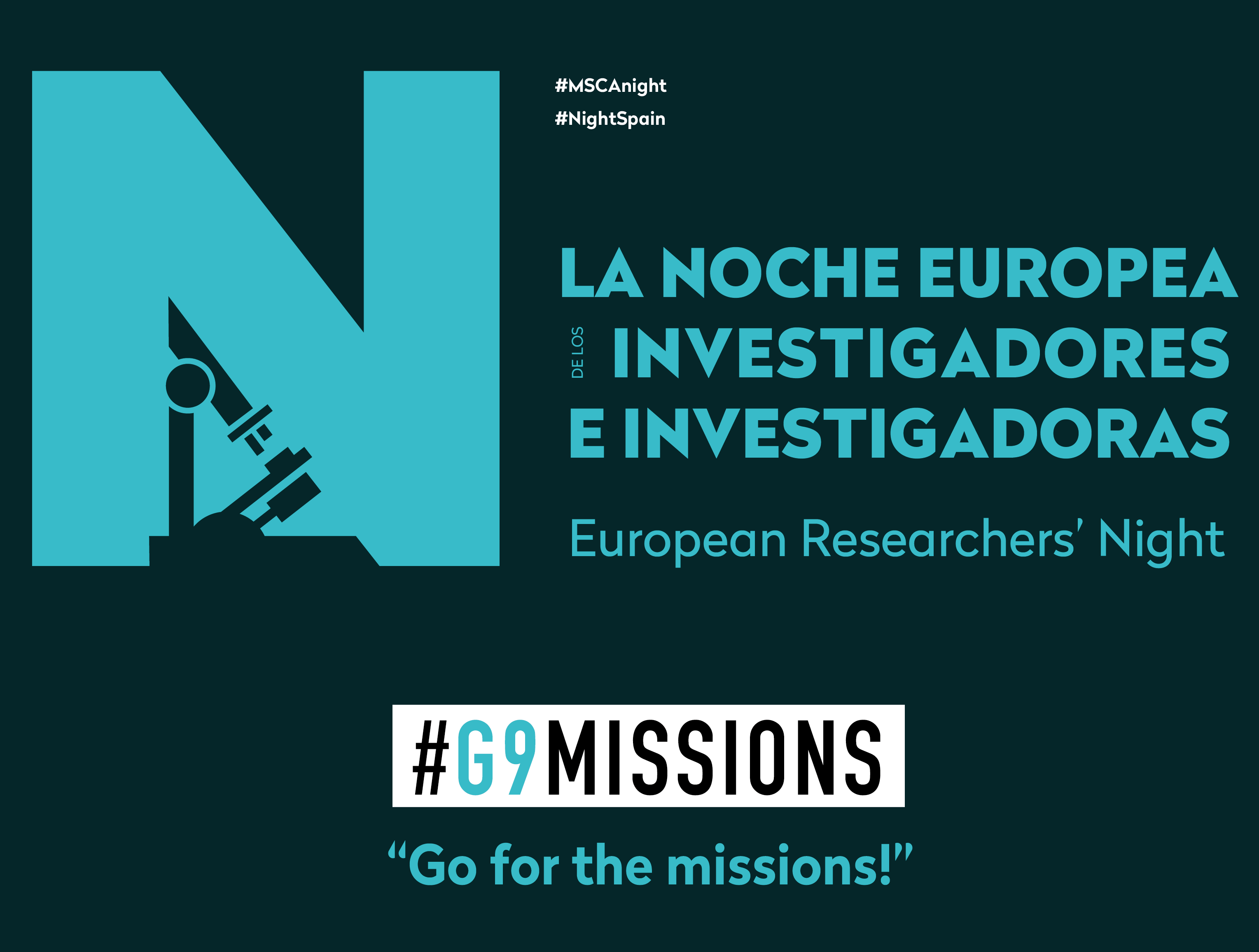
The European Research Night was held at the University of Zaragoza and the CaixaForum. Our researchers showed their day-to-day work in the laboratories in different experiments and talks about their work:
- How packaging makes our food safer and how we can recover it through recycling.
- Experience the sensation a surgeon feels while performing a laparoscopic operation with our computer simulator.
- Holograms that behave like physical reality, that can be touched and played with.
- Experiment with a virtual reality device and bring an animated character to life.
- The bioplastics revolution and how we are using them
- How water climbs on a piece of paper or why ketchup doesn't fall out of a jar if you don't squeeze it. Find out how the properties of fluids change their behaviour.
- How to transform green hydrogen into syngas?
- Fluid dynamic technologies for society (Teruel University Campus)
- How to speak to your Korean friend in his or her language without studying it
The Researchers' Night is an event of dissemination and commitment to science promoted by the European Commission within the Marie Sklodowska-Curie actions of the Horizon Europe programme, which is held simultaneously in 400 European cities, including 14 in Spain.
The University of Zaragoza brings science to the cities of Huesca, Teruel and Zaragoza through more than 90 activities with more than 180 experts - 116 women and 64 men - who will share their projects and years of knowledge.
All the programming is possible thanks to the funding that the Aragonese public campus has obtained for the third consecutive year from the European Commission (EC) for its #G9Missions project, through a consortium made up of the Group 9 of Universities (G-9), in which the universities of Cantabria, Castilla-La Mancha, Baleares, Extremadura, Oviedo, Basque Country, Public University of Navarra, La Rioja and Zaragoza participate.
The "Go for the Missions!" (G9 Missions) project is centred on the five European research and innovation missions of the EU with the aim of providing solutions to major societal problems around the world. These missions focus on Cancer, Climate Change Adaptation including Social Transformation, Water and Oceans, Smart and Climate Neutral Cities and Soil Health and Food.
At the University of Zaragoza, the Researchers' Night is led by the Vice-Rectorate for Science Policy, and organised by the Scientific Culture Unit (UCC) and the European Projects Office (OPE), in collaboration with the University of Zaragoza's own and joint research institutes and other research centres.
The CaixaForum Centre hosts another of the European Research Night activities, in this case, with the support of the Fundación la Caixa and Esciencia Eventos Científicos, which brings science to the stage and exhibits the research fair, all of which is open to the general public.
TIMETABLE - I3A RESEARCH GROUPS
EXPERIMENTS – PARANINFO
- 17-18h. Envases seguros para alimentos saludables - GUIA
Descubre con el grupo GUIA cómo los envases hacen nuestros alimentos más seguros y cómo podemos recuperarlos a través del reciclaje.
Laura Aguerri, Raquel Becerril, Nicolás Gracia, Silvia Lóbez, David Rupérez, Filomena Silva y Paula Vera. - 18-19h. Simulador quirúrgico – Hologramas interactivos - AMB
Vivir la sensación que siente un cirujano mientras realiza una operación laparoscópica con nuestro simulador computacional.
Y, además, hologramas que se comportan como la realidad física, que se pueden tocar y jugar con ellos.
Icíar Alfaro, Carlos Bermejo, Elías Cueto, David González y Beatriz Moya. - 19-20h. Crea tu propio personaje virtual – GRAPHICS AND IMAGING LAB
En el grupo Graphics and Imaging Lab del I3A investigan en informática gráfica, creando las imágenes y mundos virtuales que necesitan estas tecnologías inmersivas y estudiando cómo las personas perciben esta nueva realidad. En este taller podrás experimentar con un dispositivo de realidad virtual y dar vida a tu propio personaje animado.
Julia Guerrero, Darío Lanza, Pablo Luesia, Daniel Martín, Juan Raúl Padrón y Diego Royo.
EXPERIMENTS – CAIXA FORUM
- 17-18.30h. Proyecto Eco Think Lab. ¿Qué sabes sobre la revolución de los bioplásticos?
Todos sabemos que el consumo de material plástico, aunque necesario en nuestra vida, puede tener consecuencias nefastas para el medio ambiente. Pero… ¿Y los bioplásticos? ¿Sabes qué son? ¿Podrían sustituir al plástico convencional?
En algunos casos sí y ya los estás utilizando en tu día a día.
Cátedra SAMCA de Desarrollo Tecnológico de Aragón y el Instituto de Investigación en Ingeniería de Aragón (I3A). - 17-20h. Descubre los misterios de la fluídica. ¡No es magia, es ciencia!" – M2BE
"¿Te has fijado cómo trepa el agua en un trozo de papel o que el kétchup no cae del bote si no lo aprietas? Descubre cómo las propiedades de los fluidos modifican su comportamiento."
Se realizarán talleres con agua y colorantes para ver la capilaridad y los cambios de temperatura. También fluidos no newtonianos (agua con maicena, kétchup...).
Pilar Alamán, Alejandra González, Pedro Guerrero, Paula Guerrero, Soraya Hernández y Alejandro Martín. - 18.30-20h. ¿Cómo transformar hidrógeno verde en gas natural sintético? - CREG
Mostraremos la capacidad de los sólidos de comportarse como un fluido al hacer pasar a través de ellos un gas que simulará a los reactivos utilizados para la generación de metano.
Víctor Mercader y Javier Lasobras.
EXPERIMENTS - TERUEL
- 17-20h. Tecnologías fluidodinámicas para la sociedad - TFD
Se ofrecerá una aproximación a la mecánica de fluidos y a la simulación computacional a través de algunos experimentos y resultados de investigación.
Pablo Solán.
TALK - PARANINFO (AULA MAGNA)
- 18-18.10h. Cómo hablar con tu amigo coreano en su idioma sin estudiarlo. Hacia la traducción automática de voz a voz - ViVoLAB
Las tecnologías del habla y el lenguaje han evolucionado extraordinariamente en los últimos años. Ahora es posible traducir textos de un idioma a otro, transcribir la voz de una persona o hacer que las máquinas hablen. En el marco del proyecto europeo ESPERANTO, estamos trabajando en el desarrollo de sistemas capaces de recibir la voz de una persona en un idioma dado y producir la misma frase con la misma voz, pero en otro idioma. Nuestros esfuerzos se centran sobre todo en hacer esto posible para lenguas minoritarias y de bajos recursos.
Ponente: Pablo Gimeno Jordán.
General programme of the Research Night:
At the University of Zaragoza: https://ucc.unizar.es/noche-investigadores/2022
In CaixaForum: https://lanochedelosinvestigadores.esciencia.es/la-noche-2022/programa-zgz-2022-2/
